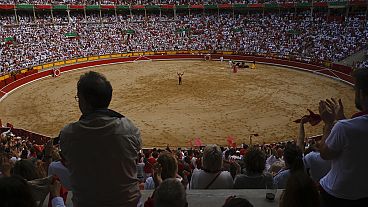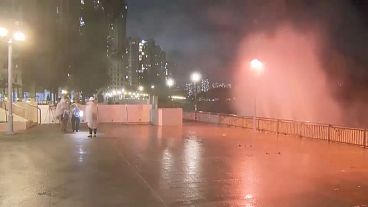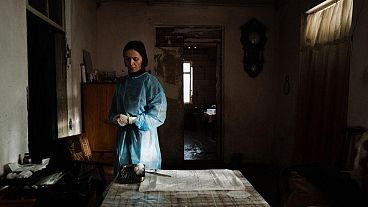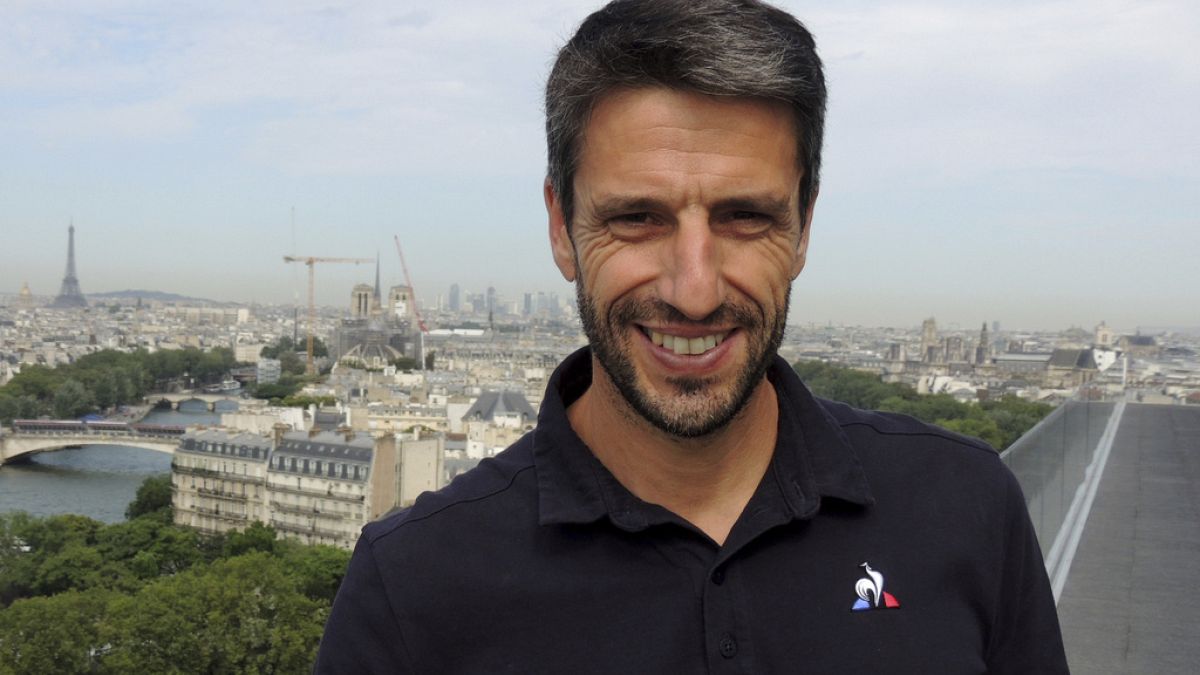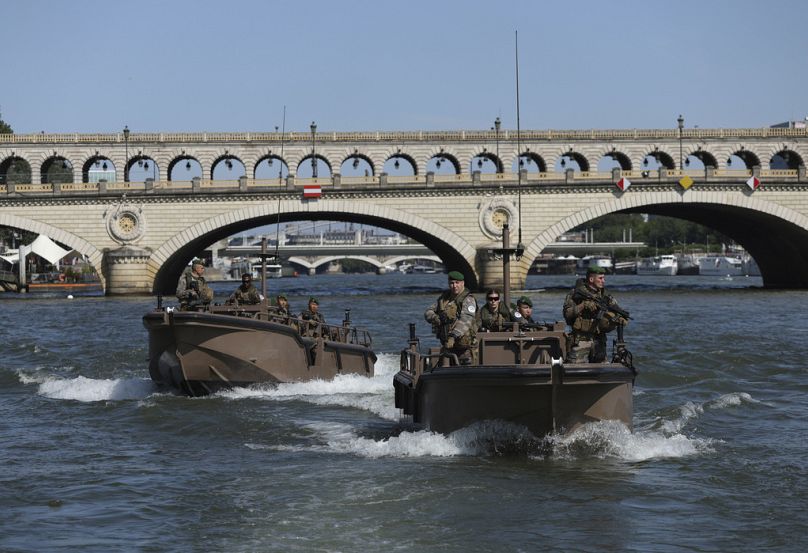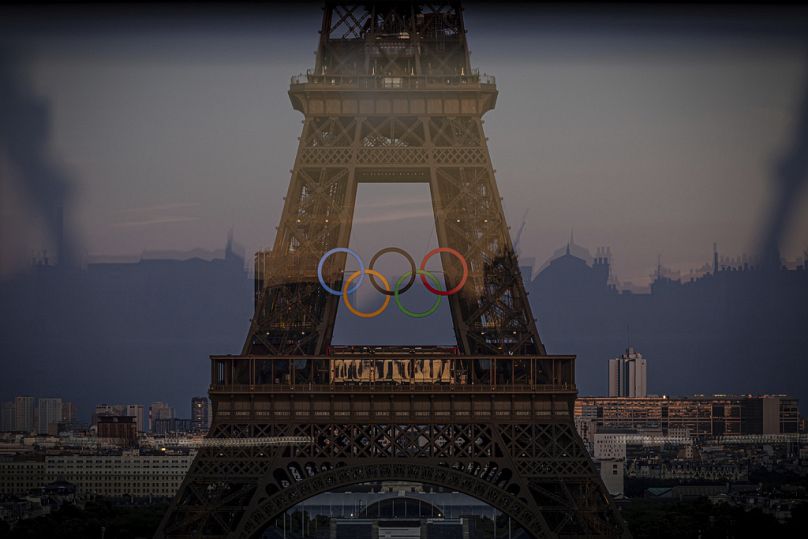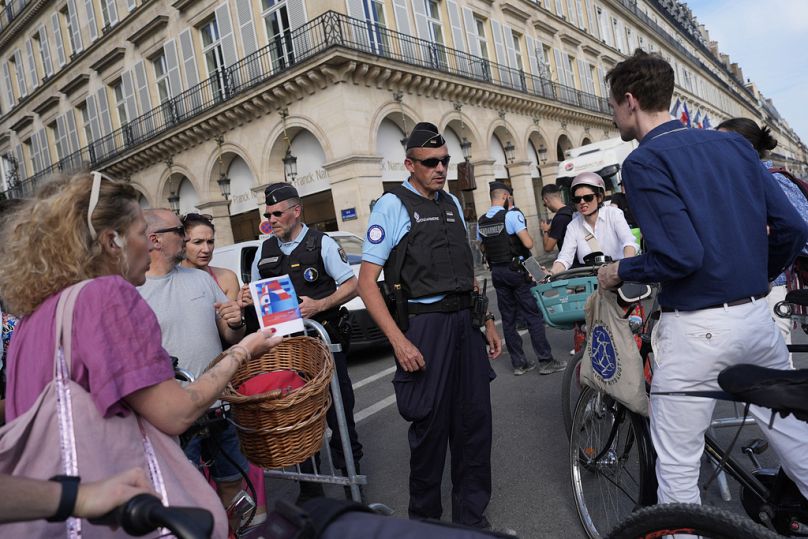The city has repeatedly suffered deadly extremist attacks and international tensions are high because of the wars in Ukraine and Gaza.
A year ago, Tony Estanguet, head of the Paris Olympics, boldly declared that France's capital would be "the safest place in the world."
When the Games open this Friday, Estanguet's confident forecast looks less far-fetched now, with squadrons of police patrolling the streets, fighter jets and soldiers primed to scramble an erected, iron-like curtain on both sides of the River Seine that will star in the opening ceremony.
France's vast police and military operation is in large part because the July 26–August 11 Games face unprecedented security challenges.
The city has repeatedly suffered deadly extremist attacks and international tensions are high because of the wars in Ukraine and Gaza.
Rather than build an Olympic park with venues grouped outside of the city centre, like Rio de Janeiro in 2016 or London in 2012, Paris has chosen to host many of the events in the heart of the bustling capital of 2 million inhabitants, with others dotted around suburbs that house millions more.
As such, the organisers are breaking with tradition by staging the ceremony with a parade on the River Seine and putting temporary sports arenas in public spaces.
The unprecedented choice to stage some venues stretching for kilometres along the Seine has made safeguarding them more complex, yet, Paris will not relent as it has a lot riding on keeping 10,500 athletes and millions of visitors safe.
And here's how it aims to do it.
45,000 police and gendarmes ready for Games
Authorities in France have put up a games-time force of up to 45,000 police and gendarmes, also backed up by a 10,000-strong contingent of soldiers that has set up the largest military camp in Paris since World War II.
It is expected that the soldiers should be able to reach any of the city's Olympic venues within 30 minutes. And their sight is something that will scare no Parisian.
Since gunmen and suicide bombers acting in the names of al-Qaeda and the Islamic State group repeatedly struck Paris in 2015, armed military patrols aboard vehicles and on foot have become common in crowded places in France.
They don't have police powers of arrest but can tackle attackers and restrain them until police arrive.
But for visitors from countries where armed street patrols aren't the norm, the sight of soldiers with assault rifles might be jarring. And that was initially the case in France.
"At the beginning, it was very strange for them to see us and they were always avoiding our presence, making a detour," said Gen. Eric Chasboeuf, deputy commander of the counter-terror military force, Sentinelle.
"Now, it's in the landscape," he said.
Rafale fighter jets, airspace-monitoring AWACS surveillance flights, Reaper surveillance drones, helicopters that can carry sharpshooters, and equipment to disable drones are among the measures that will police the Paris skies.
During next week's opening ceremony, Paris skies will be closed by a no-fly zone extending for 150 kilometres (93 miles) around the capital.
Campaigners worry about digital rights
Ground security is not the only concern the Olympic organizers have. The International Olympic Committee has stated that it is ready for disinformation campaigns aimed at the Paris Games.
With fears of possible cyber attacks, cameras twinned with artificial intelligence software, authorised by a law that expands the state's surveillance powers for the Games will flag potential security risks.
But campaigners for digital rights worry that Olympic surveillance cameras and AI systems could erode privacy and other freedoms and zero in on people without fixed homes who spend a lot of time in public spaces.
Saccage 2024, a group that has campaigned for months against the Paris Games, aimed to expand the scope of Olympic security, describing it as a "repressive arsenal" in a statement to The Associated Press.
"And this is not a French exception—far from it—but a systematic occurrence in host countries," it said.
"Is it reasonable to offer one month of 'festivities' to the most well-off tourists at the cost of a long-term securitization legacy for all residents of the city and the country?".
The scrutiny has also been extended to Olympic ticket holders, workers and others involved in the Games and applicants for passes to enter Paris' most tightly controlled security zone, along the Seine's banks.
The checks blocked more than 3,900 people from attending, Interior Minister Gerald Darmanin said.
According to the interior minister, some were flagged for suspected Islamic radicalization, left- or right-wing political extremism, significant criminal records and other security concerns.
"We're particularly attentive to Russian and Belarusian citizens," Darmanin added, although he stopped short of linking exclusions to Russia’s war in Ukraine and Belarus' role as an ally of Moscow.
Darmanin said 155 people considered to be "very dangerous" potential terror threats are also being kept away from the opening ceremony and the Games, with police searching their homes for weapons and computers in some cases.
He said intelligence services haven't identified any proven terror plots against the Games, "but we are being extremely attentive."
The opening ceremony of the Paris 2024 Olympics will take place on July 26 and is expected to be watched by around one billion people globally.

